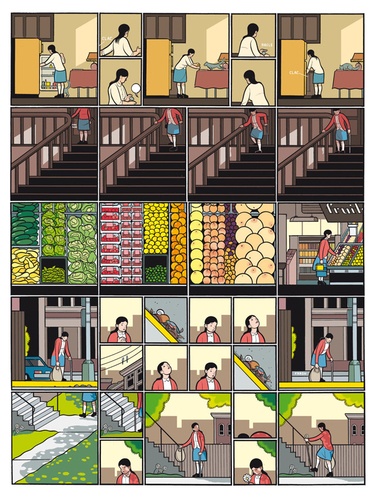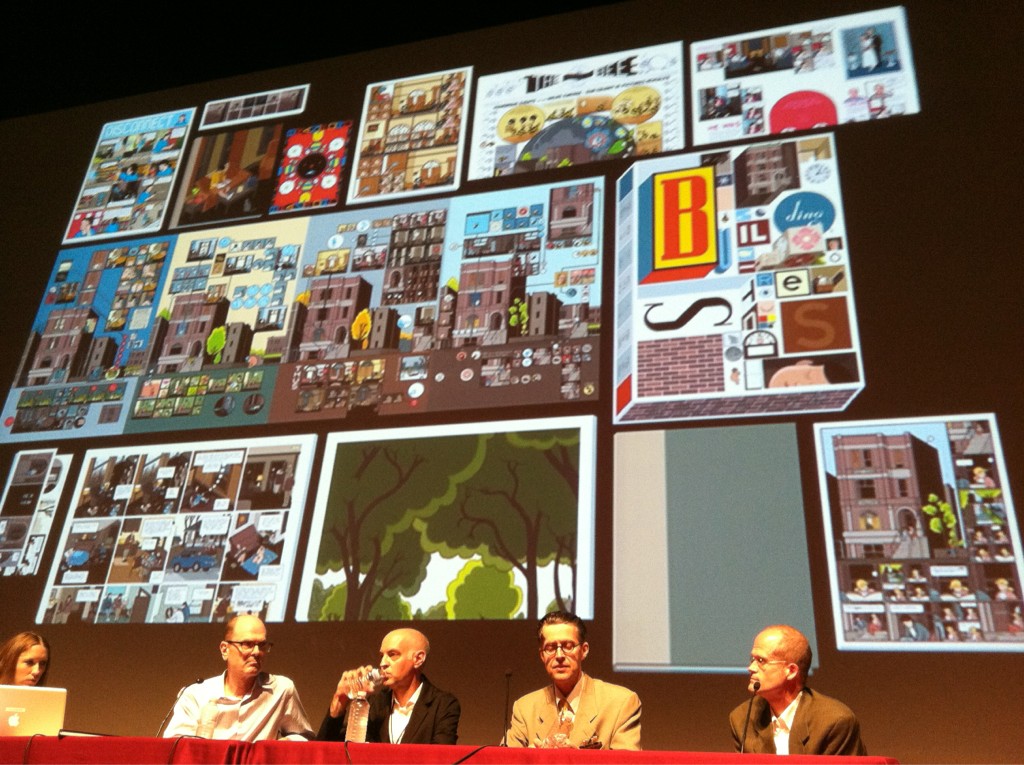

It is this, the way rhythm and movement is conducted through the various scales and formats in Building Stories and how it is played out in recurring graphic themes, that elevates Ware to master-status. If you wanted to, you could work hard to read it chronologically but then that would do away with the memory-like quality of individual stories and their extraordinary, almost musical, handling of space and time. Isolation, both mental and physical is Ware territory – together with dry-or-die humour – this work reminds me how devastatingly beautiful it can be. In short (and it has to be that way even if my notes tell me something different) the story/one-big-“emotional prevarication” occupies a single building in Chicago and follows its inhabitants a lonely landlady, a lonely-but-together couple, and a lonely woman. Ware delivers in many different bits of printed matter (pamphlets and broadsheets, hard- and cloth-bound books, one-pagers and a something like a games board), a collection of comics that has no real beginning or end because that is what regular books do and Chris Ware can do without. But applause it will get (and probably stunned silence quickly followed by imaginative combinations of swear words, as was the case in our studio when this advance copy arrived).īuilding Stories is (insert swear-verb) lovely to look at. To them, we say thanks (and keep it up).Ĭhris Ware, who is widely-known to dismiss in self-deprecating tones any personal merit adjoined to his work (rumour has it he is collecting up and destroying one of his earliest published endeavours), is perhaps not ready to receive this thanks or the praise his latest, indubitable magnum opus Building Stories will inspire. It has since been followed-up by a number of key cartoonists who have widened its wake and filtered through some of the most extraordinary and genre-defying narratives that modern readers have had the pleasure of eyeballing.

The illustrative vanguard for progressive, independent and socially challenging comics that Art Spiegelman spearheaded with RAW magazine and his own Maus graphic novel, drove this point home and into the collective literary psyche.

It’s been a very long time since comics widened their scope beyond superheroes and science fiction for anyone to dismiss them as the creative property for only those interested in such stuff.


 0 kommentar(er)
0 kommentar(er)
